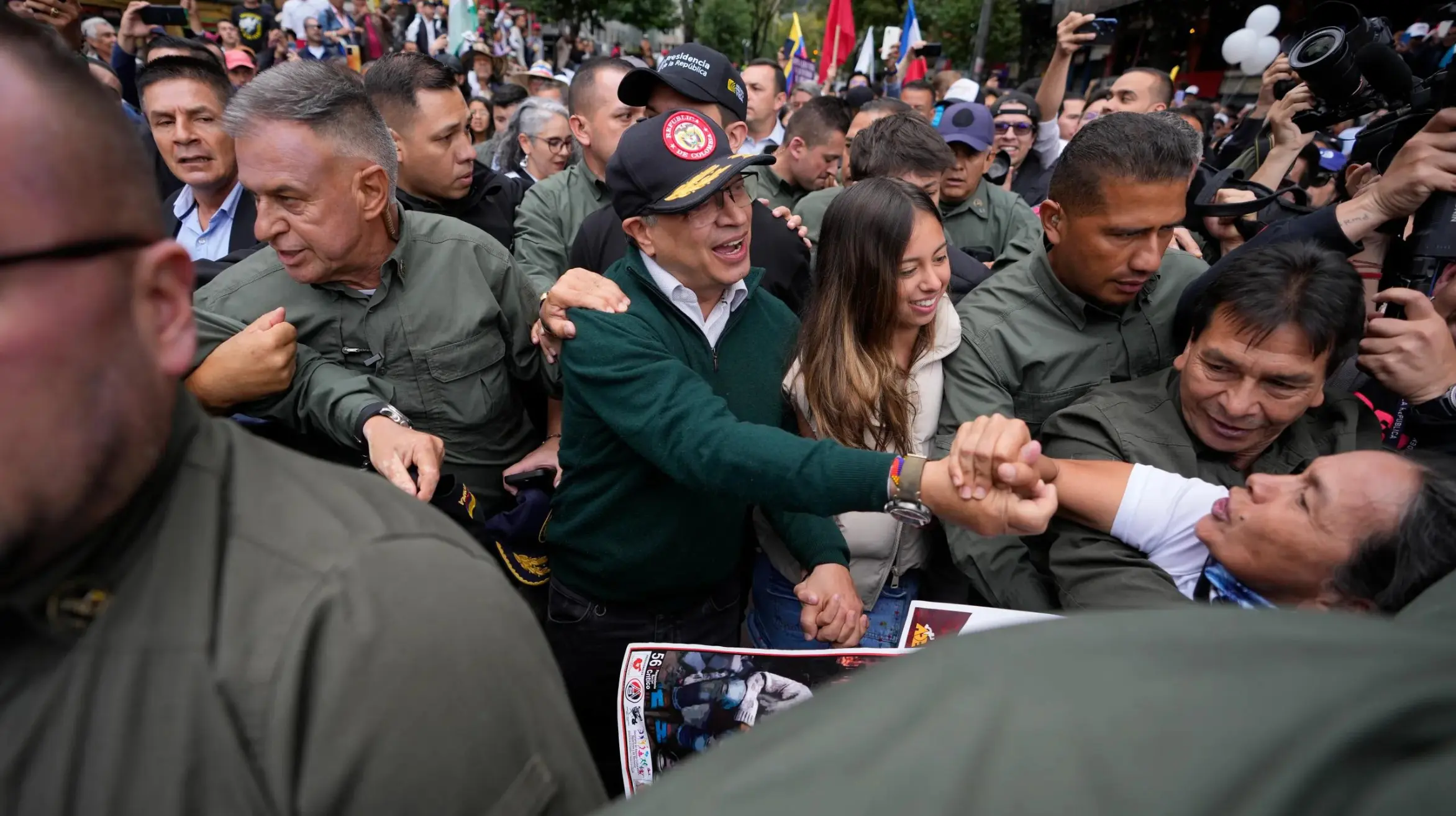Colombia (Transatlantic Today)— Colombia’s recent decision to sever relations with Israel and condemn its government as “genocidal” for its actions in the Gaza Strip has exacerbated bilateral tensions. The move comes after Colombian President Gustavo Petro’s comments on the conflict between Israel and Hamas further deteriorated relations between the two countries.
Israeli officials have responded by accusing Colombia of allying with Hamas. As a result, Colombian diplomats in Israel will return home and Colombian citizens in Israel and the Palestinian territories will receive consular assistance from the embassy in Tel Aviv.
Bilateral relations
Since establishing diplomatic relations in 1957, Colombia and Israel have signed numerous agreements on political, economic, educational, and technical cooperation, including a free trade agreement. However, military relations between the two countries are particularly close.
Security Cooperation
Colombia depends heavily on Israeli military equipment, including KFIR model aircraft and Galil rifles. These agreements also cover cyber security, intelligence sharing and military equipment for border security.
The KFIR aircraft, which have been in service since the 1980s, require maintenance. Despite alternative proposals from other countries, no agreements have been made. Defense Minister Iván Velásquez stressed that any acquisition decision needed presidential approval.
According to Latimes, Colombia also has problems with its Russian-made MI-17 helicopters due to maintenance issues following the suspension of contracts with Russian companies after the war with Ukraine.
Existing Contracts and Future Prospects
The diplomatic breakdown in the relationship between Colombia and Israel remains unclear, however, Defense Minister Velásquez asserted that existing contracts, including maintenance for KFIR aircraft and the Barak missile system, will be honored.
Efforts are underway to diversify suppliers and develop domestic military capabilities, including the production of a new rifle by the Colombian Military Industry to replace the Galil.
Impact on Security Cooperation
Retired General Guillermo León sheds light on potential consequences, including the accelerated deterioration of military capabilities if cooperation ceases or new contracts are not signed. The uncertainty surrounding the breakdown in relations worsens the situation.
Trade Relationship: Potential Implications
The diplomatic rift also raises questions about the future of the trade relationship between Colombia and Israel. The Free Trade Agreement, effective since 2020, provides tariff advantages for exports and imports between the two countries.
Colombia exports coal, coffee, flowers, sweets, and parts for airplanes and helicopters to Israel. According to the Colombian Ministry of Commerce, last year sales to that country reached 499 million dollars, which represented a 53% drop compared to the previous year. However, the impact of the diplomatic fallout on trade remains uncertain.
In conclusion, the collapse in diplomatic relations between Colombia and Israel has its effects on security cooperation and trade, with both countries facing challenges in improving this tense relationship.


























